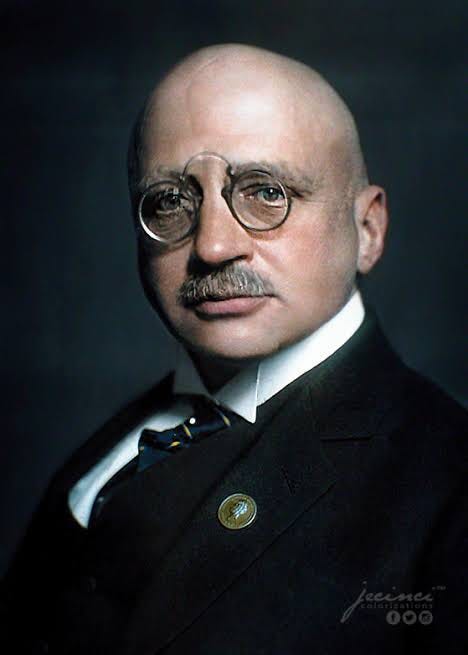Unrequited Love: The Story of Fritz Haber and his Complicated Legacy
No way would you have thought that the man famed for a discovery that saved humanity from famine and is still in use today would be the subject of a piece on unrequited love. The historical context behind many scientific discovery would leave you questioning l what good and bad really is. The story of Fritz Haber, a German-Jewish scientist, who alongside Carl Bosch, discovered the Haber-Bosch process of synthesising Nitrogen from atmospheric air.

This discovery came at a time when scientists knew that nitrogen-based fertilisers were necessary for efficient large scale food production and although the supply of nitrogen was limited, the atmosphere was full of inert nitrogen. For this discovery, Fritz Haber was awarded the Nobel Prize in 1918.
Haber’s breakthrough accelerated food production in a world that was on the brink of famine. ‘Brot aus luft’ a German phrase that translates to bread out of thin air’ was commonly used to describe the discovery then.
Haber was driven by a strong sense of patriotism which he expressed with an unmatched tenacity and immoral athleticism. During the First World War, Fritz convinced the German chain of command to allow the use of a lethal chemical weapon he had created on the battlefield. Skeptical at first, he was allowed to use the poison gas made out of chlorine at the Battle of Ypres, which turned out to be one of the three costly battles of the First World War. Fritz’s role in the war was vehemently opposed by his wife who later died by suicide. Apocryphal sources say that Fritz had hosted a dinner to celebrate his dubious victory at Ypres after his promotion to the rank of captain. She shot herself that same night.
As the Nazi rose to power in Germany, the increasing wave of anti-semitism led to the dissolution of about 75% of the workforce at Haber’s institute occupied by Jews. Although Fritz himself was spared, he protested the decision by resigning and then moved to England.
Fritz would later become a vagrant with no home and with a failing health, he embarked on a journey to Switzerland. He died of a heart attack on his way.
However, while Fritz Haber was alive, he had invented a cyanide-based pesticide named Zyklon A. After his death, with the Third Reich firmly in power, Zyklon A was rid of the caution smell that Haber had infused in it for safe use and it was modified into Zyklon B, the noxious agent that would be used in gas chambers for the mass extermination of Jews.

In one lifetime, Haber left a legacy which spanned from an outstanding scientific feat that improved food production till this day, a dastardly act of gaseous warfare and to an even more damning contribution to the death of millions of Jews. Fritz Haber was a deeply cultivated man whose tenacity was obvious in his impassioned drive to find answers. His legacy is a bunch of complexities and according to Albert Einstein, whom he shared a friendship with, “Haber’s life was the tragedy of the German Jew – the tragedy of unrequited love.”
